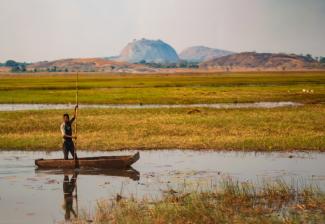USAID's Regional Environmental Activities focus on the conservation and sustainable management of the Cubango-Okavango Basin, one of Africa's most biodiverse habitats, supporting over 1 million people who rely on its water for drinking, fishing, agriculture, and tourism. This region, covering about 323,000 square kilometers—half of which is in Angola—faces threats from land use changes, water diversion, and urbanization, which jeopardize its unique ecosystems and vital resources.
To address these challenges, the Ecosystems, Communities, and Climate – Cubango-Okavango (ECCO) activity has been initiated, backed by funding from USAID and additional support from the private sector. In collaboration with transboundary institutions and private companies, ECCO aims to improve livelihoods, promote biodiversity, and enhance climate resilience in the upper Cubango-Okavango region. Its goals include supporting community governance of water and sanitation services and fostering cross-sector collaboration for biodiversity conservation.
In addition, USAID is partnering with the U.S. Forest Service to implement improved biodiversity conservation and natural resource management practices. Their initiatives include national forest inventory support, community forestry pilot projects, fire management capacity assessments, and evaluations of Angola’s protected area network. These efforts complement various regional programs aimed at safeguarding Angola's natural resources, enhancing economic opportunities, and fostering sustainable development across Angola, Namibia, and Botswana.

